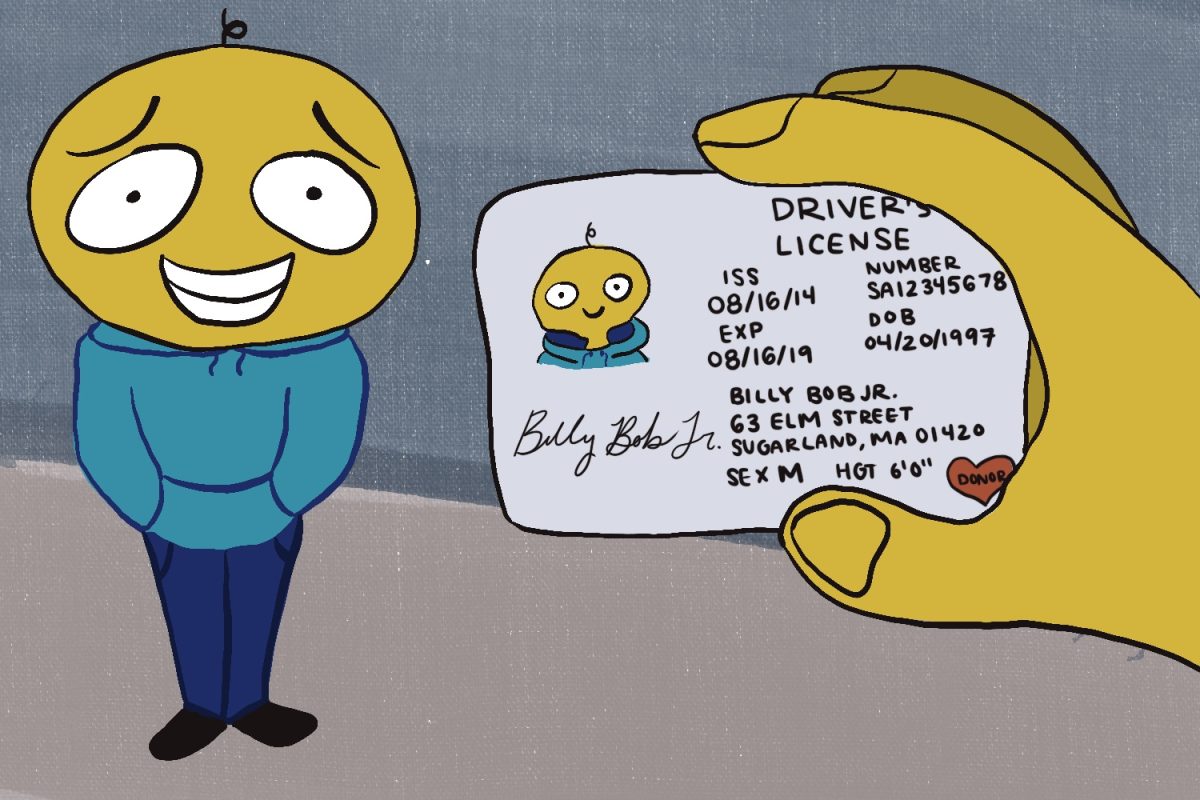Last Wednesday was my 21st birthday. Given that I had two exams the following day, I opted for a calm night out with my friend to celebrate.
We got to the bar at 11:57 p.m. on the eve of my birthday, with the bouncer deciding to let me in three minutes early. “I’m going to break the law for you,” he joked.
Having my first legal drink on American soil made all the late night Mobil runs, clandestine dorm drinking and encounters with RAs and campus police seem so pointless.
See, I never got a fake, preferring to wait out the three years of adulthood purgatory. I did, however, watch various friends spend money they didn’t have all so they could bypass the rights that almost all other 18-to-20-year-olds in the world have.
Keep in mind, almost a third of fourth-semester undergraduates own a fake ID, as do an eighth of pre-college students, according to a 2007 study published in Psychology of Addictive Behaviors.
If that isn’t a glaring and obvious failure of our drinking laws then I don’t know what is.
This final hurdle of adulthood is different in the states than any comparable country. European nations tend to set it at a standard 18, sometimes allowing even younger age exceptions for lower alcohol content beverages, according to a July 9, 2023 CNN article.
I often hear people cite brain development as a major reason for delaying the legal consumption of alcohol.
However, if at 18 your brain is developed enough to enlist in the army, buy a semi-automatic rifle or even take on a $150,000 student loan, then buying a beer should not be out of the question.
To dissect this American idiosyncrasy properly, it’s important to understand how the United States settled on 21 as its trademark drinking age.
Many of the United States’ draconian drinking laws come from prohibition-era policies, such as our criminalization of public alcohol consumption and intoxication, or other state-specific laws that prohibit the times, places and ways alcohol can be served.
The age limit specifically was a Reaganite development from the totally tubular 1980s, with the passage of the Federal Uniform Drinking Age Act of 1984. Before this, states set their own limits on alcohol consumption, ranging from 18 to 21.
Let me just say, President Reagan, I hope you’re looking up at us.
States were pressured to shift, with the alternative being a 10% cut in highway funding, and to become the national enemy of the Mothers Against Drunk Driving.
Vermont made the switch over to 21 in 1986, according to a Cynic article from Oct. 27, 2003.
The same two-decade-old article’s conclusion reads “…good luck with those fake ID’s.”
It’s a travesty that we as a society have accepted that 18-to-20-year-olds want to drink, and even regularly consume alcohol, but need to take illegal measures in order to do so.
In many ways, our university experience has been tarnished by these prohibitive drinking laws, with our dry campus often crawling with cops looking to bust overconfident first-years and dissuade them from ever drinking underage again.
UVM’s current system punished 495 students in 2022-23 for alcohol related misconduct, a necessary evil to receive government money, given their status as a public university.
However, these punitive measures only serve to perpetuate more dangerous drinking behaviors, such as pregaming and binge-drinking, as well as creating apprehension when alerting authorities of over-consumption for fear of punishment.
Student alcoholism would be more effectively dealt with if it were solely viewed as a health issue, with students encouraged to have a healthy, but realistic relationship with alcohol.
University sanctions on drinking only encourage students to buy fake IDs—forging government documents cannot be the solution to underage drinking.
This a massive policy failure by the United States—no other country in the world would keep a system where a third of its brightest university students choose to commit a felony, all because of decisions made decades ago.
With students having to balance work, academics and clubs, an active social life and a healthy amount of sleep, we deserve to be able to kick back and have some drinks with friends without UVM or the Burlington Police Department getting involved.
One solution would be to decriminalize consuming alcohol for 18-to-20-year-olds before lowering the drinking age across the board.
It would also help in the meantime if 21+ spaces like clubs and bars authorized 18-year-olds entry, while marking them as underage.
This would mean that the social aspect of nightlife wasn’t non-existent for this age-group, which could decrease the prevalence of fakes and other dangerous drinking behaviors.
Though I’ve finally made it to the promised land of 21, I’ll never forget all the hoops that American drinking laws made me jump through, and I’ll never stop hating Ronald Reagan.














